About a week after we arrived, my grandfather came back to Taiwan from a multi-week trip to China (and he has since gone back to the States, where he now lives most of the year). A couple of years ago, he had an operation that damaged some of his vocal chords, and he couldn’t really speak for a long time, but he has since recovered from that and it was fun to “get to know him” again. For a large majority of the time that Jeremy has known my Gong Gong (that’s Mandarin for “maternal grandfather”—Chinese people have different words for “grandma,” “grandpa,” “aunt,” “uncle,” etc. based on what side of the family they are on and whether they are older or younger than your parents), he has been more or less mute, so J was delighted to discover his personality: about 50% grumpy old man, 50% elder statesman, with a wicked sense of humor mixed in.
While Gong Gong was here, it just so happened to be Tomb Sweeping Day (Qing Ming Jie), a national holiday where you honor to your ancestors by praying before their grave sites, offering food, and burning paper money. It’s called “Tomb Sweeping Day” because traditionally, you clean up around the grave site and make sure your ancestor’s final resting place is clean and comfortable for them.
On Tomb Sweeping Day, we went to pay our respects to Gong Gong’s mother and his older brother at a nearby…I don’t know what you call it…mausoleum? It is a large building where a loved one’s remains are kept indoors in small cubbies. We brought lots of food:
And we paid respects to our ancestors by lighting incense and praying to them (bai bai) at a small altar:
Meanwhile, my grandpa, his niece (my Da Ah-yi), and her son were writing wishes for their loved ones on large red envelopes and filling them with paper money.
Then, we burned the paper money in a large outdoor furnace. FYI, paper money is burned so that your ancestors can “spend” it in heaven. It is often embellished with gold or silver foil stamps. It is important to fold the papers before placing them in the furnace (though I’m not sure why). I found out later that the paper money with a silver foil is for the newly-deceased, and gold-foil stamped papers are burned for gods or for your loved ones that have been gone for a while (and have therefore taken on god-like status). However, they also have paper money that looks just like the US and New Taiwan dollar. It is, after all, all about the Benjamins.
The furnace routed the smoke from the burning paper money directly towards the mausoleum (where my great-grandmother’s ashes are kept), which I thought was quite poetic.
I am really grateful that we had the opportunity to take part in Tomb Sweeping Day. Though I don’t remember my great-grandmother, my mom told me that she held me when I was little, and since I didn’t know how I was supposed to pray to her at the altar, I just closed my eyes and thought of myself as a little baby being held in her arms before bai‘ing. It was really meaningful to me to make this connection with my ancestors, and to take part in rituals that are part of my family’s culture and history.
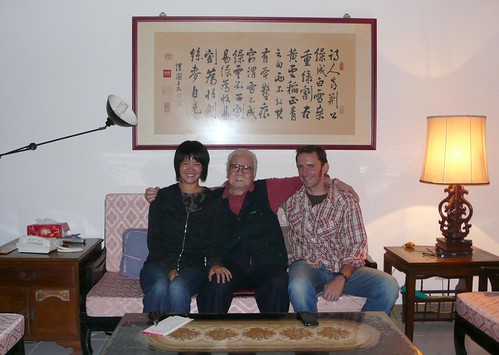
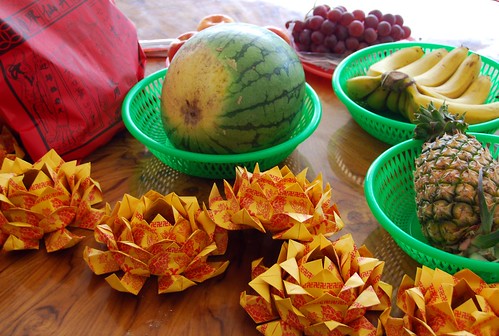
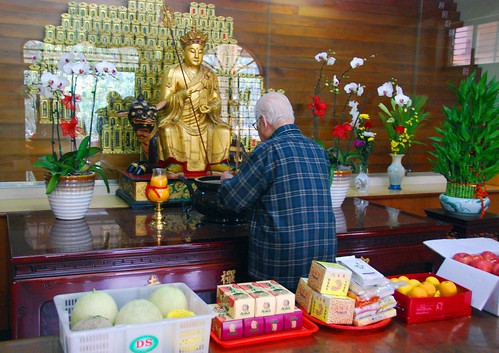
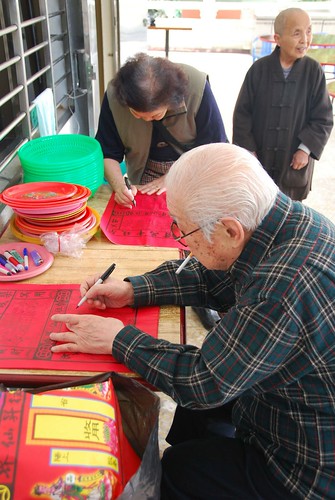
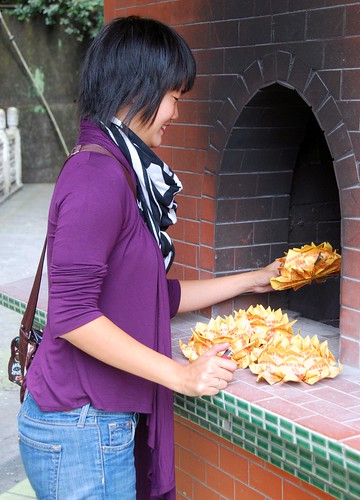
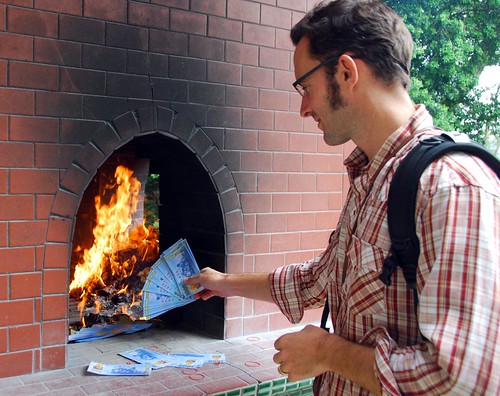
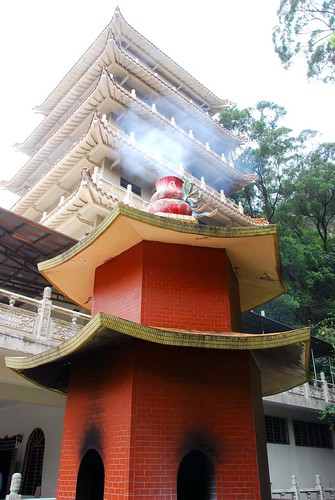
I’m so grateful, Hope and Jeremy, that you were able to participate in this with your Grandfather…beautiful..xo L